September 28, 2023 •
Indiana Supreme Court Declares State Law Bans Corporate Contributions to Independent Expenditure PACs
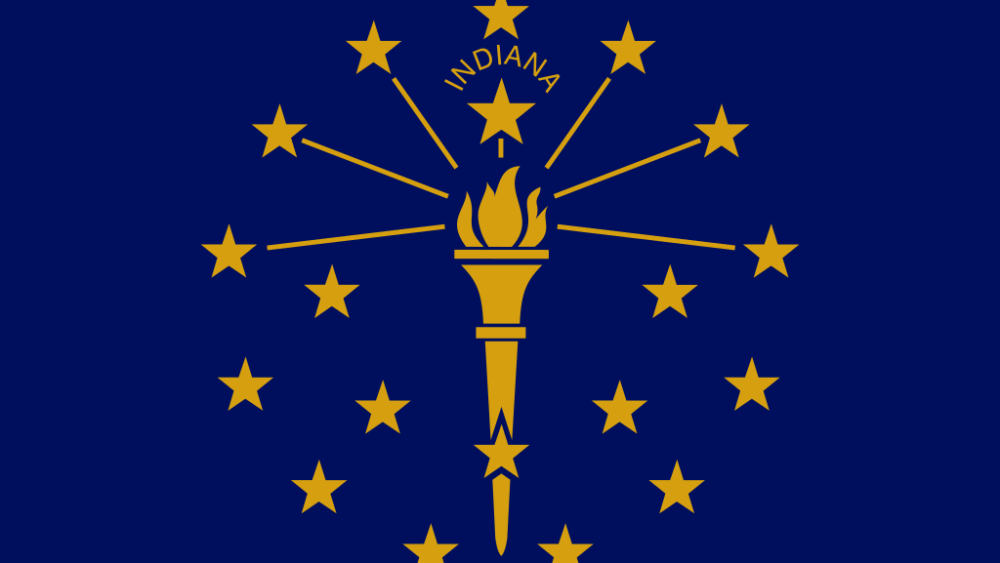
Flag of Indiana
The Indiana Supreme Court concluded state law bans corporate contributions to independent expenditure committees or to any PAC earmarked for independent expenditures in Indiana Right to Life Victory Fund and Sarkes Tarzian, Inc. v. Diego Morales, et al. Indiana Right […]
The Indiana Supreme Court concluded state law bans corporate contributions to independent expenditure committees or to any PAC earmarked for independent expenditures in Indiana Right to Life Victory Fund and Sarkes Tarzian, Inc. v. Diego Morales, et al.
Indiana Right To Life’s super PAC wanted to accept a $10,000 contribution from a local media company, Sarkes Tarzian, Inc. and though the state never would have stopped the transaction, the PAC sued in federal court.
The 7th Circuit Court of Appeals said it wanted the Indiana Supreme Court to declare whether state law bans unlimited contributions to super PACs.
The state Supreme Court ruled the law explicitly notes which groups corporations can give to and because PACs that only make independent expenditures are not mentioned, corporations cannot give anything to them.
The court’s opinion acknowledged both sides expect the federal court to stop the state from enforcing the ban because the U.S. Supreme Court ruled in Citizens United v. FEC that limiting corporate contributions to super PACs is unconstitutional.
The state Supreme Court decision leaves the General Assembly with the task of updating the statute to permit corporate contributions for the purpose of independent expenditures.
January 11, 2021 •
House of Delegates to Consider Prohibiting Corporate Contributions
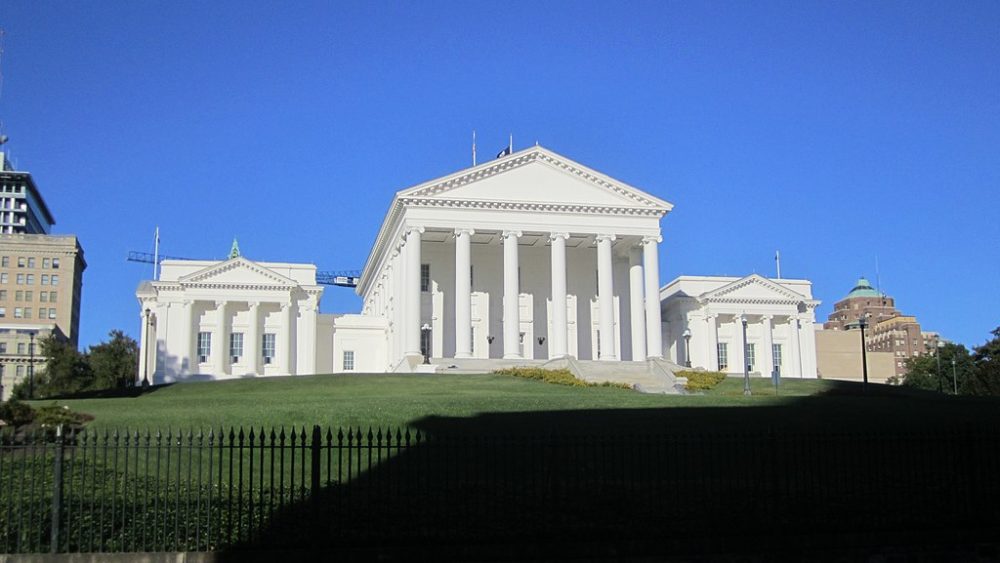
Virginia State Capitol - KWL / CC BY-SA
A bill prohibiting corporate campaign contributions has been introduced in the Virginia House of Delegates. House Bill 1906 would not only prohibit direct contributions to candidates and committees but also prohibit indirect contributions. This would include designated contributions or contributions directed […]
A bill prohibiting corporate campaign contributions has been introduced in the Virginia House of Delegates.
House Bill 1906 would not only prohibit direct contributions to candidates and committees but also prohibit indirect contributions.
This would include designated contributions or contributions directed through another person or committee.
The proposed bill includes a civil penalty of up to twice the amount of the prohibited contributions.
May 20, 2019 •
Supreme Court Declines to Hear Corporate Contribution Case
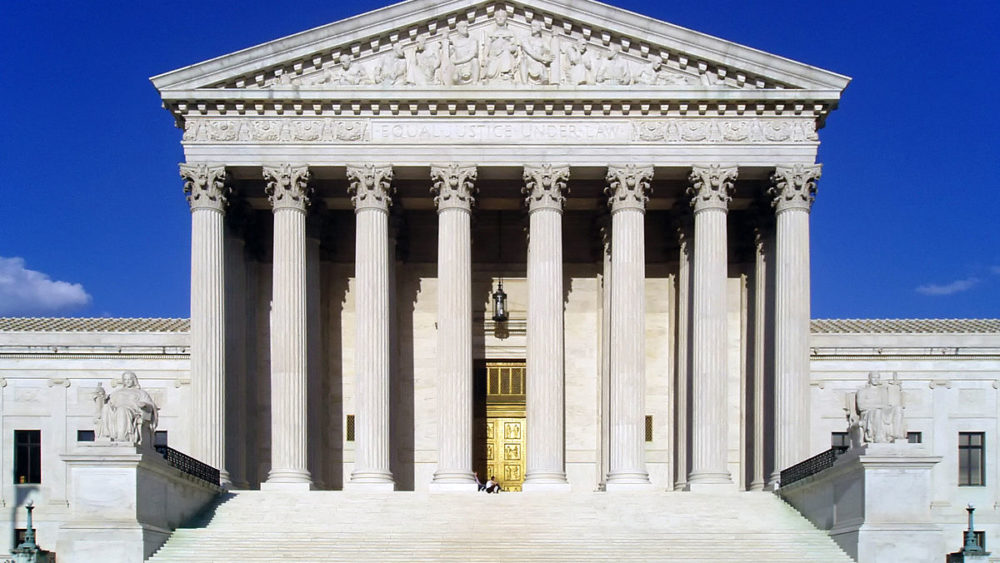
United States Supreme Court Building
On Monday, the Supreme Court of the United States announced it would decline to hear a challenge to a Massachusetts law. The law in question bans corporate contributions to campaigns, parties and candidate-focused political action committees. The Massachusetts Supreme Judicial […]
On Monday, the Supreme Court of the United States announced it would decline to hear a challenge to a Massachusetts law.
The law in question bans corporate contributions to campaigns, parties and candidate-focused political action committees.
The Massachusetts Supreme Judicial Court unanimously rejected the challenge, brought by 1A Auto Inc. and 126 Self Storage Inc., in September.
The suit claimed disparate treatment by banning for-profit corporate contributions while allowing significant contributions by unions and nonprofits.
After the Supreme Court ruling in Citizens United, state law was updated to allow corporate spending for independent expenditures but not political contributions.
Massachusetts Attorney General Maura Healey applauded Monday’s decision not to hear the case for the integrity of state elections.
Opponents of the law are hopeful the Supreme Court will take up the issue in another case.
February 8, 2019 •
Massachusetts Considering Lowering Union Contribution Limit
The Massachusetts Office of Campaign and Political Finance released draft regulations this week that would reduce the amount of money a union can contribute to a candidate annually from $15,000 to $1,000. A state law banning corporate contributions was upheld […]
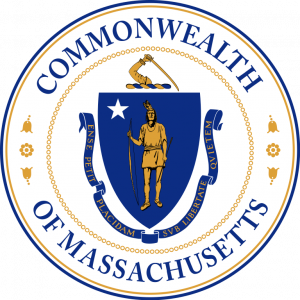 The Massachusetts Office of Campaign and Political Finance released draft regulations this week that would reduce the amount of money a union can contribute to a candidate annually from $15,000 to $1,000.
The Massachusetts Office of Campaign and Political Finance released draft regulations this week that would reduce the amount of money a union can contribute to a candidate annually from $15,000 to $1,000.
A state law banning corporate contributions was upheld by the high court this year, but the ruling noted Massachusetts law was unclear regarding contributions from unions.
The draft regulation would also cap union contributions at $500 to a PAC, and $5,000 to a political party.
A public hearing on the draft regulations will be held on March 15 with the final regulations expected by May.
September 16, 2016 •
FEC Unable to Agree on Policy Regarding Permissible Corporate Political Activity by U.S. Domestic Subsidiaries of Foreign Nationals
On September 15, the Federal Election Commission (FEC) was unable to agree on a policy to clarify when and if a U.S. domestic subsidiary corporation of a foreign national is illegally involved in political activity. Federal law prohibits foreign nationals […]
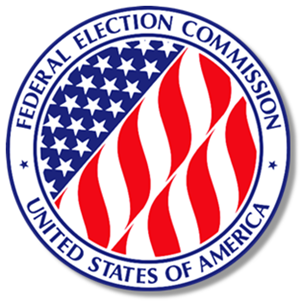 On September 15, the Federal Election Commission (FEC) was unable to agree on a policy to clarify when and if a U.S. domestic subsidiary corporation of a foreign national is illegally involved in political activity.
On September 15, the Federal Election Commission (FEC) was unable to agree on a policy to clarify when and if a U.S. domestic subsidiary corporation of a foreign national is illegally involved in political activity.
Federal law prohibits foreign nationals from directly or indirectly making contributions, donations, expenditures, independent expenditures, and disbursements in connection with federal, state, or local elections. FEC regulations also prohibit foreign nationals from directing, controlling, or participating in the decision-making process of any person, such as a corporation, with regards to decisions concerning the making of contributions, donations, expenditures, or disbursements in connection with elections in the U.S.
Additionally, the FEC was unable to reach an agreement on the creation of a safe harbor for political committees to accept corporate contributions deemed not to have come from foreign national sources.
September 12, 2016 •
Direct Corporate Contributions a Future Possibility in South Dakota
The South Dakota panel assembled by Secretary of State Shantel Krebs to review campaign finance laws showed support of a proposal to allow direct contributions from individual organizations like businesses and labor unions. The panel met Tuesday, September 6 and […]
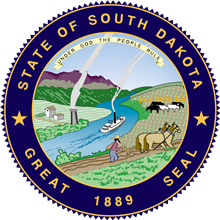 The South Dakota panel assembled by Secretary of State Shantel Krebs to review campaign finance laws showed support of a proposal to allow direct contributions from individual organizations like businesses and labor unions.
The South Dakota panel assembled by Secretary of State Shantel Krebs to review campaign finance laws showed support of a proposal to allow direct contributions from individual organizations like businesses and labor unions.
The panel met Tuesday, September 6 and will meet two more times before finalizing proposals that will be requested from the Legislature in January. The panel is also expected to propose new campaign finance reporting requirements.
May 18, 2016 •
Campaign Finance Bill to Ban Corporate Contributions Introduced in Ontario Canada Legislative Assembly
On May 17, a bill to amend the Election Finances Act was introduced in the Legislative Assembly of Ontario. Bill 201, the Election Finances Statute Law Amendment Act, 2016, which also includes amendments to the Taxation Act, 2007, bans corporate […]
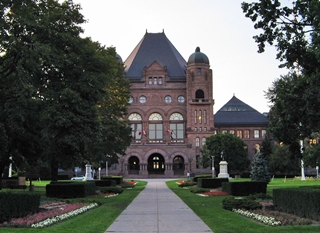 On May 17, a bill to amend the Election Finances Act was introduced in the Legislative Assembly of Ontario.
On May 17, a bill to amend the Election Finances Act was introduced in the Legislative Assembly of Ontario.
Bill 201, the Election Finances Statute Law Amendment Act, 2016, which also includes amendments to the Taxation Act, 2007, bans corporate and union donations to political parties. The legislation will also limit contributions from individuals, limit spending for third-party advertising, and tighten political party spending and fundraising rules for by-elections.
If passed, the changes are hoped to be in place or significantly underway before the June 2018 election, with initial changes legislated for January 1, 2017.
December 10, 2015 •
Wichita City Council Votes to Allow Contributions by Corporations
The Wichita, Kansas City Council approved a measure removing the prohibition on corporations, unions, and political action committees donating to local campaigns. Such groups are still limited to contributions of $500 per election, matching the limit on individual contributions and […]
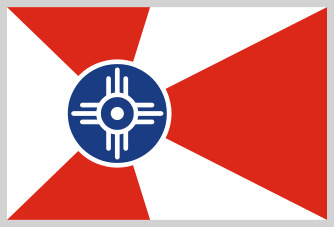 The Wichita, Kansas City Council approved a measure removing the prohibition on corporations, unions, and political action committees donating to local campaigns. Such groups are still limited to contributions of $500 per election, matching the limit on individual contributions and mirroring the state’s restrictions.
The Wichita, Kansas City Council approved a measure removing the prohibition on corporations, unions, and political action committees donating to local campaigns. Such groups are still limited to contributions of $500 per election, matching the limit on individual contributions and mirroring the state’s restrictions.
Proponents of the change believe with the limit so low, the risk of corporations or PACs swaying an election is minimal.
The council also voted unanimously to move city elections from the spring to the fall beginning in 2017.
October 5, 2015 •
Kentucky State Senator Files Suit Over Contribution Limits and Ban on Gifts from Lobbyists
State Sen. John Schickel filed a federal lawsuit against the Kentucky Registry of Election Finance and the Legislative Ethics Board aimed at eliminating the state’s campaign contribution limits. The suit claims the $1,000 limit to individual candidates and the ban […]
 State Sen. John Schickel filed a federal lawsuit against the Kentucky Registry of Election Finance and the Legislative Ethics Board aimed at eliminating the state’s campaign contribution limits. The suit claims the $1,000 limit to individual candidates and the ban on corporate contributions are violations of free speech.
State Sen. John Schickel filed a federal lawsuit against the Kentucky Registry of Election Finance and the Legislative Ethics Board aimed at eliminating the state’s campaign contribution limits. The suit claims the $1,000 limit to individual candidates and the ban on corporate contributions are violations of free speech.
The suit also asks the court to strike down ethics rules prohibiting lobbyists from making contributions, prohibiting employers of lobbyists from making contributions while the Legislature is in session, and banning gifts from lobbyists to legislators.
Kentucky House candidate David Watson and Pendleton County judge candidate Ken Moellman Jr. have joined the suit. The state agencies have until October 6 to respond.
July 16, 2015 •
Seattle Ballot Initiative Proposes Pay-to-Play Restrictions, Reduction to Contribution Limits
Initiative 122, a ballot measure proposing to raise property taxes in Seattle to create a publicly financed elections program, will appear on the general election ballot in Seattle. If passed, the “Honest Elections Seattle” measure would impose a $30 million […]
 Initiative 122, a ballot measure proposing to raise property taxes in Seattle to create a publicly financed elections program, will appear on the general election ballot in Seattle. If passed, the “Honest Elections Seattle” measure would impose a $30 million tax levy over a 10 year period, granting citizens four $25 “democracy vouchers” to use towards the campaigns of city candidates.
Initiative 122, a ballot measure proposing to raise property taxes in Seattle to create a publicly financed elections program, will appear on the general election ballot in Seattle. If passed, the “Honest Elections Seattle” measure would impose a $30 million tax levy over a 10 year period, granting citizens four $25 “democracy vouchers” to use towards the campaigns of city candidates.
Initiative 122 would also ban contributions from corporations with medium-sized and large city contracts as well as corporations who lobby city officials. Contribution limits would also be lowered under the measure, from $700 per election cycle to $500.
Voters in Seattle will have an opportunity to approve or deny Initiative 122 on November 3, 2015, at the regularly scheduled general election.
Political contributions from corporations and unions may soon be prohibited in Ottawa, Canada’s municipal elections if City Councillor Tobi Nussbaum can convince the city to seek provincial approval for the ban. On March 25, Nussbaum informed the city council he […]
 Political contributions from corporations and unions may soon be prohibited in Ottawa, Canada’s municipal elections if City Councillor Tobi Nussbaum can convince the city to seek provincial approval for the ban. On March 25, Nussbaum informed the city council he will ask for debate on the issue at the next meeting on April 15. According to the Ottawa Sun, Mayor Jim Watson is against a prohibition on corporate and union contributions.
Political contributions from corporations and unions may soon be prohibited in Ottawa, Canada’s municipal elections if City Councillor Tobi Nussbaum can convince the city to seek provincial approval for the ban. On March 25, Nussbaum informed the city council he will ask for debate on the issue at the next meeting on April 15. According to the Ottawa Sun, Mayor Jim Watson is against a prohibition on corporate and union contributions.
November 18, 2014 •
Arkansas Lawmakers Prefile Ethics Bill to Clarify Recent Changes
Lawmakers have prefiled a bill to clarify new ethics laws contained in a constitutional amendment passed by voters on November 4, 2014. The amendment prohibits lobbyist gifts and corporate contributions, but the Ethics Commission needs further legislative authority to enforce […]
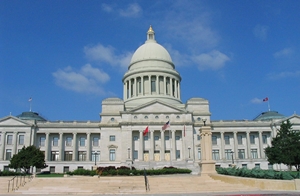 Lawmakers have prefiled a bill to clarify new ethics laws contained in a constitutional amendment passed by voters on November 4, 2014.
Lawmakers have prefiled a bill to clarify new ethics laws contained in a constitutional amendment passed by voters on November 4, 2014.
The amendment prohibits lobbyist gifts and corporate contributions, but the Ethics Commission needs further legislative authority to enforce the constitutional changes.
Democratic Rep. Warwick Sabin and Republican Sen. Jon Woods filed House Bill 1002 as a shell bill, without any specific proposals, to publicize the issue ahead of the session start date on January 12, 2015.
Photo of the Arkansas State Capitol by jglazer75 on Wikimedia Commons.
February 25, 2013 •
U.S. Supreme Court Denies Review of Appeal Dealing with Issue of Federal Political Contributions from Corporations
United States v. Danielczyk
 Today the United States Supreme Court decided not to grant a review of the case of United States v. Danielczyk.
Today the United States Supreme Court decided not to grant a review of the case of United States v. Danielczyk.
Danielczyk is a criminal case in which one of the defense arguments was the Federal Election Campaign Act of 1971 prohibiting direct corporate contributions to federal candidates was unconstitutional.
The U.S. District Court Judge presiding over the case had agreed with the defense and, based on Citizens United v. FEC, found corporations have an equal right to make political contributions under federal law as do human beings. The judge’s decision was reversed on appeal. The reversal on this issue of law now stands.
December 11, 2012 •
Campaign Finance Bill Introduced in New York City
Mixed reactions amongst city leaders concerning possible new rules
 The city council has introduced a bill that would change the way unions and corporations, among others, could contribute to elections. The bill, introduced by Councilmember Rosie Mendez, would remove contribution limits on unions or other membership organizations and corporations for communications aimed at its members, stockholders, or employees. The only catch would be that the union or corporation must use reasonable efforts to restrict the communication to its members, employees, or stockholders.
The city council has introduced a bill that would change the way unions and corporations, among others, could contribute to elections. The bill, introduced by Councilmember Rosie Mendez, would remove contribution limits on unions or other membership organizations and corporations for communications aimed at its members, stockholders, or employees. The only catch would be that the union or corporation must use reasonable efforts to restrict the communication to its members, employees, or stockholders.
Those in favor say that it will allow a small non-profit group to disseminate a candidate’s photograph in its newsletter. Councilmember Gale Brewer said, “You cannot put a television ad, you cannot do that now, and have a communication. This is just member to member.”
However, not everyone agrees. Amy Loprest, executive director of the city’s campaign finance board said, “I think we have one of the best campaign finance laws in the country, and this is a big step backwards.”
The bill was sent to the council’s committee of governmental operations where a hearing will be held on Thursday. A full city council vote could come as soon as next week. At this point, it is impossible to tell whether the council will pass the bill. But, either way, it is sure to drum up some strong emotions during debate.
Photo of the New York City Hall courtesy of Howrealisreal on Wikipedia.
State and Federal Communications, Inc. provides research and consulting services for government relations professionals on lobbying laws, procurement lobbying laws, political contribution laws in the United States and Canada. Learn more by visiting stateandfed.com.

